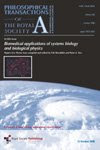I have chosen to start this post with the following quotation attributed to Vikas Swarup’s co-principle character CEO, Vinay Mohan Acharya.
“A leader
doesn't have to be the smartest, the strongest of the prettiest. I’d rather
have a less-than-brilliant leader as my CEO than a genius but gutless plodder,
because leadership is the most important factor for a business to succeed.”
Such
considerations, phrased in more academic terms, could also be attributed, for example, to HBR author Daniel
Goleman in his article;
“What makes
a leader" HBR. Jan 2004.
To quote
Goleman;
“Every
business person knows a story about a highly intelligent, highly skilled
executive who was promoted into a leadership position only to fail at the job.
And they also know a story about someone with solid—but not
extraordinary—intellectual abilities and technical skills who was promoted into
a similar position and then soared."
THE LEADER
MUST “WALK THE TALK” i.e. PRACTISE
WHAT YOU PREACH,
Or in the more vulgar response to bragging used in my youth;
“Put your money where your mouth is!”
Swarup’s CEO illustrates this by some well chosen analogies in the following
quotations:
“Just as
machines need maintenance, and products need marketing, employees need
direction. It is the leader who provides that direction, who encourages and
inspires ordinary people to do extra-ordinary tasks. For this the leader has
to walk the talk.”
“In matters
of style, a leader swims with the current; but, in matters of principle he stands
like a rock.” Swarup again, through his CEO,
paraphrases Thomas Jefferson.
Well phrased communication could also be termed “Talking the walk” used mostly in USA. This underscores two points
-A. that things are being done
and
B. that they must be seen to have been done.
Again this is well illustrated in HBR article by Bill Taylor.
COMMUNICATION: The Best Leaders “Talk the Walk” HBR AUGUST 7, 2014.
NB. Taylor a writer, a speaker, and entrepreneur
both
“Walks the Talk” and “Talks the Walk”.
He introduces his HBR article as follows:
“One of the most ubiquitous aphorisms in
business is that the best leaders understand the need to “walk the talk” — that
is, their behaviour and day-to-day actions have to match the aspirations they
have for their colleagues and organisation. But the more time I spend with
game-changing innovators and high-performing companies, the more I appreciate
the need for leaders to “talk the walk” — that is, to be able to explain, in
language that is unique to their field and compelling to their colleagues and
customers, why what they do matters and how they expect to win. The only sustainable
form of business leadership is thought leadership. And leaders that think
differently about their business invariably talk about it
differently as well.”
The reader may find some historical notes on quotations below. Here the link is directly related to the subject of "Walking the Talk", of course.
REFERENCES
1. Daniel Goleman in his article:
2. Bill Taylor
(Bill Taylor is a writer, a speaker, and entrepreneur who has shaped the
global conversation about the best ways to compete, innovate, and succeed. As a
co-founder and founding editor of Fast
Company,)
3. Historical Sources of
the notion “WALK THE TALK”
1.
Origines: Shakespeare's Richard III, 1594 in the
words of his character “The 1st Murderer
Fear not, my lord, we will not stand to prate;
Talkers are no good doers: be assured
We come to use our hands and not our tongues.
Talkers are no good doers: be assured
We come to use our hands and not our tongues.
2.
Or again;
In Man and Superman, 1903, George Bernard Shaw suggested that:
"He who can, does. He who cannot,
teaches."
NB. No offence is intended either to Teachers and Professors in general or to HBR contributors!
3.
Benjamin Franklin is reputed to have
coined the proverbial saying:
"Well done is better than well
said".










